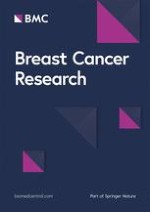Erschienen in:

01.12.2008 | Section introduction
Introduction to sessions on 'Endocrine therapy: where have we come from, where are we at and where are we going to?'
verfasst von:
James N Ingle
Erschienen in:
Breast Cancer Research
|
Sonderheft 4/2008
Einloggen, um Zugang zu erhalten
Excerpt
Two of the clinical sessions focused on endocrine therapy of breast cancer. It is clear that whereas endocrine therapy represents a crucial modality in breast cancer management, with substantial success to date, there is still much to be learned and great potential for increasing its value to patients. This therapeutic gain will probably come from a better understanding of resistance to endocrine therapy, both de novo and acquired; better selection of the right endocrine agent for the right patient; and better management of adverse events and noncompliance. Importantly, endocrine therapy is an important backbone upon which targeted therapy combinations will be built. These sessions addressed many of these important issues. …